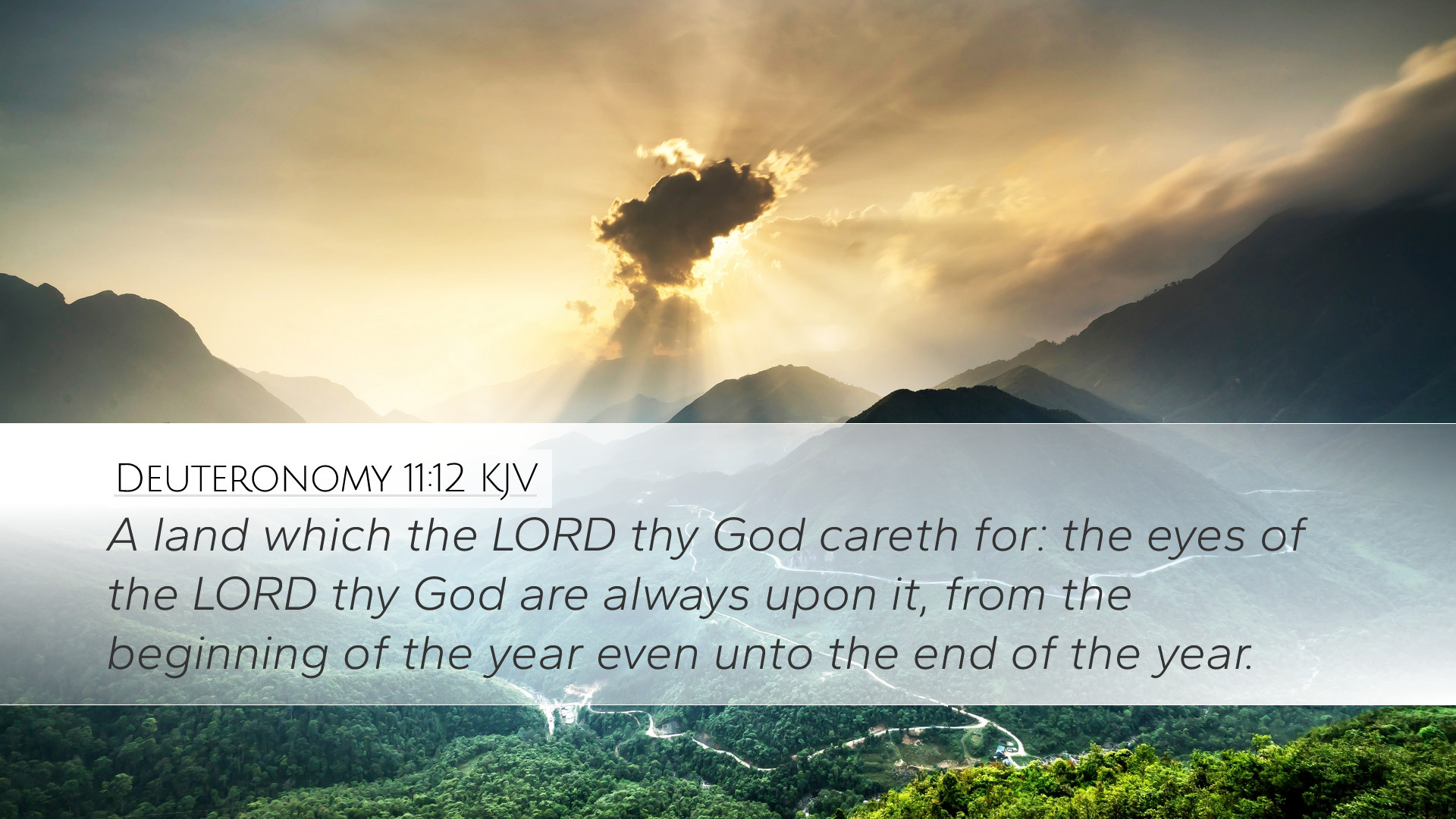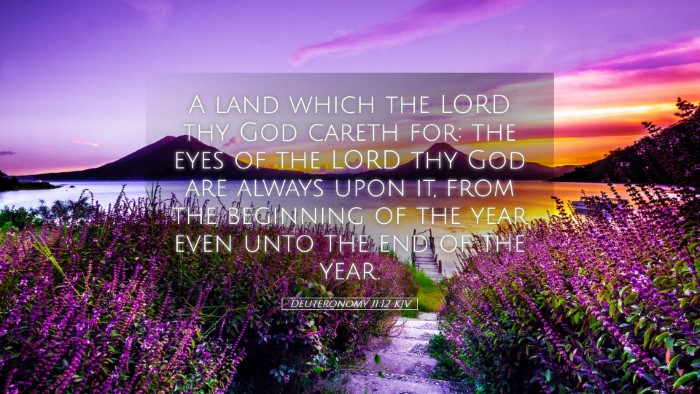Commentary on Deuteronomy 11:12
Verse: "A land which the LORD thy God careth for: the eyes of the LORD thy God are always upon it from the beginning of the year even unto the end of the year." (Deuteronomy 11:12)
Introduction
This verse serves as a pivotal affirmation of God's providential care over the land of promise, contrasting divine attention with human forgetfulness. By examining this passage through the lenses of revered public domain commentaries, we will explore its theological implications and practical applications for contemporary believers.
Theological Insights
1. Divine Providence:
Matthew Henry emphasizes that God’s continual oversight of the Promised Land illustrates His providence which is ever-active. The phrase "the eyes of the LORD thy God are always upon it" indicates that God’s attentiveness is constant, reminding believers of His involvement in every aspect of life.
2. The Nature of the Land:
Albert Barnes elucidates how the land’s description reflects not only its geographical qualities but also its spiritual significance. This land, a gift from God, is one where the divine presence is assured, and it serves as a symbol of God’s covenant faithfulness.
3. The Context of Obedience:
Adam Clarke notes that this promise is contingent upon the faithful adherence of the Israelites to God's commandments. The connection between blessing and obedience is a recurring theme throughout scripture, underscoring the importance of fidelity to God's laws for the sustenance of His blessings.
Exegetical Analysis
1. “A land which the LORD thy God careth for”:
This phrase signifies that the land's prosperity depends on divine care. It sets a paradigm for understanding God’s relationship with His creation, particularly as it relates to stewardship and man's responsibility to nurture what God has entrusted to him.
2. “The eyes of the LORD thy God are always upon it”:
This metaphorical language signifies God's constant surveillance and interest in the welfare of His people and their dwelling place. It reflects His assurance to the Israelites that they are not abandoned but are always under His divine watch.
3. “From the beginning of the year even unto the end of the year”:
This phrase conveys an idea of continuity and comprehensive care throughout all seasons. As Barnes suggests, this serves to remind the faithful that in every season—whether of bounty or barrenness—God’s watchful providence remains unceasing and unfaltering.
Practical Applications
1. Assurance of God’s Provision:
For pastors and theologians, this verse is a reminder to reassure congregants of God's unwavering provision and care. Whether one is in a season of abundance or trial, this promise instills hope and trust in God's character.
2. Call to Faithfulness:
Understanding the conditional aspect of God’s blessings encourages individuals and communities to live in accordance with His word. It is an impassioned call to strive towards righteousness, knowing that our actions have repercussions on our spiritual and communal landscapes.
3. Grounds for Gratitude:
Reflecting on God’s constant vigilance promotes a spirit of thankfulness among believers. Such gratitude may lead to a life of worship and responsiveness to God’s commands, exemplifying the relationship designated in Deuteronomy where blessings flow from obedience.
Conclusion
The verse Deuteronomy 11:12 encapsulates profound theological truths about God’s intimate involvement with His creation. Through insights derived from Matthew Henry, Albert Barnes, and Adam Clarke, it becomes evident that this passage not only offers comfort but challenges believers to engage deeply with the covenant relationship established by God. In an era where distractions abound, the reminder of God’s continual watchfulness serves as an enduring hope and a call to faithful living.


